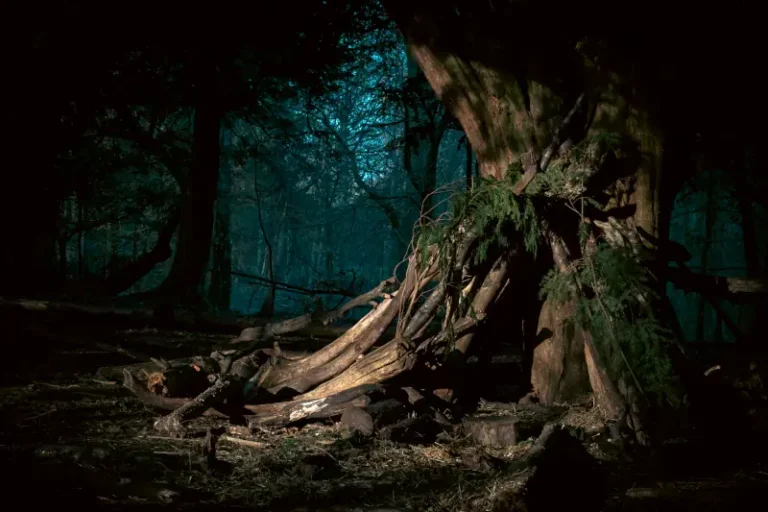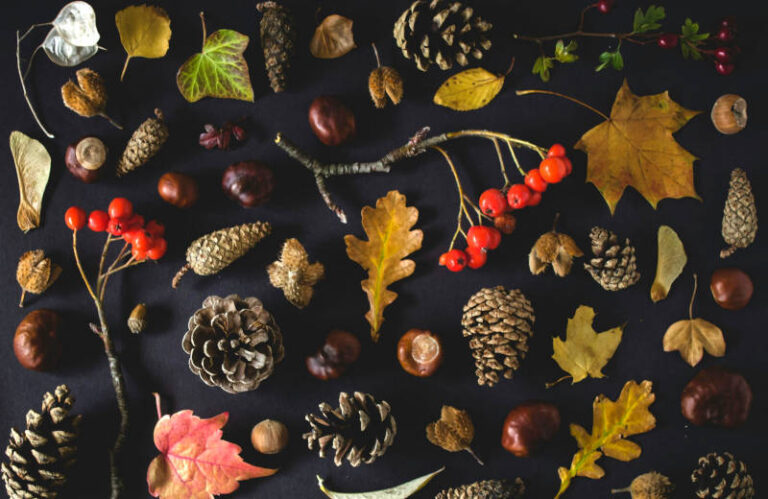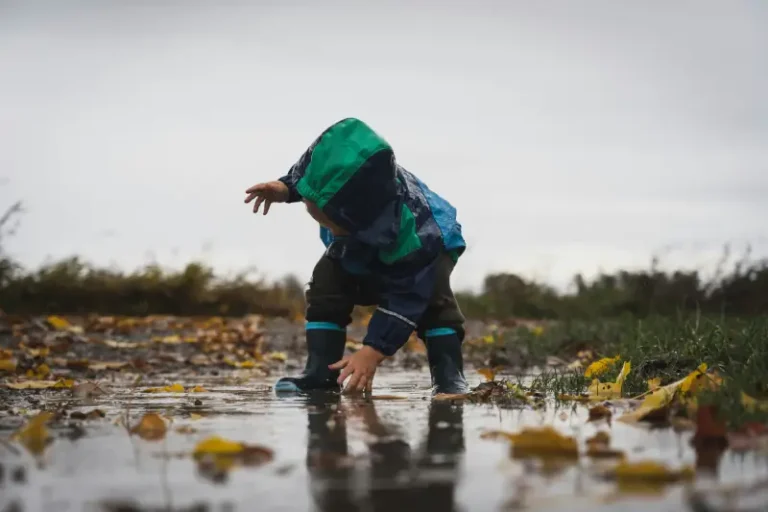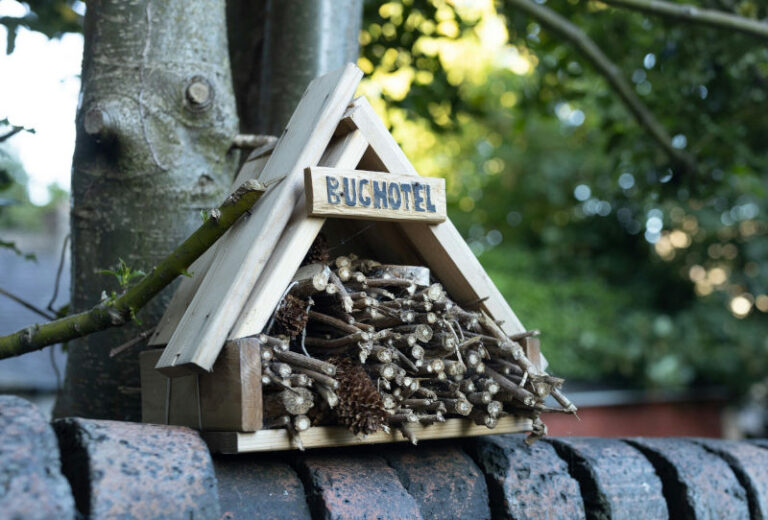Bring the wonders of nature into learning with these Forest School activities for EYFS! Forest School offers children the opportunity to explore the great outdoors while developing confidence, teamwork, and problem-solving skills.
These activities encourage hands-on learning while supporting all EYFS Areas of Learning and Development.
Blossom’s Recommended Forest School Activities for Early Years:
Activity 1: Build a Woodland Den
Let children gather natural materials like sticks, leaves, and logs to construct their own woodland den. Encourage them to work together to design and build a space that could be a “home” for a forest creature or their group.

If you don’t necessarily have access to sticks and logs, you can instead ask the children to use their imagination and simply create what a woodland den is to them. Maybe it’s just a blanket and a teddy bear!
EYFS Areas of Learning and Development and Early Learning Goals:
- Physical Development
- Gross Motor Skills:
- Lifting, carrying, and arranging large materials develop strength and coordination.
- Fine Motor Skills:
- Handling smaller twigs or tying string enhances precision.
- Gross Motor Skills:
- Personal, Social and Emotional Development
- Building Relationships:
- Working together to build the den fosters teamwork.
- Managing Self:
- Completing the task builds confidence and problem-solving skills.
- Building Relationships:
- Understanding the World
- The Natural World:
- Exploring natural materials helps children learn about their environment.
- The Natural World:
Activity 2: Nature Scavenger Hunt
Create a scavenger hunt list with items like pinecones, leaves, feathers, and stones. Children can work individually or in pairs to find as many items as possible. Don’t forget to keep an eye out for Stick Man!

You can also extend this into child-led play and let the children create artwork with what they’ve found.
EYFS Areas of Learning and Development and Early Learning Goals:
- Understanding the World
- The Natural World:
- Observing and collecting natural items develops curiosity about the environment.
- The Natural World:
- Communication and Language
- Listening, Attention and Understanding:
- Following scavenger hunt instructions strengthens focus.
- Speaking:
- Describing their finds builds vocabulary and communication skills.
- Listening, Attention and Understanding:
- Mathematics
- Number:
- Counting the items collected introduces basic number skills.
- Number:
Activity 3: Mud Kitchen Play
Set up a mud kitchen with pots, pans, and spoons for children to create “forest recipes.” They can mix mud, leaves, sticks, and water to make imaginative creations like mud pies or “leaf soup.”

Or just splash around if the puddle is big enough.
EYFS Areas of Learning and Development and Early Learning Goals:
- Expressive Arts and Design
- Being Imaginative and Expressive:
- Pretending to cook encourages role play and creativity.
- Being Imaginative and Expressive:
- Physical Development
- Fine Motor Skills:
- Scooping, stirring, and pouring enhance hand strength and precision.
- Fine Motor Skills:
- Personal, Social and Emotional Development
- Managing Self:
- Independent play builds confidence and decision-making skills.
- Managing Self:
Activity 4: Leaf Art Creations
Collect leaves of various shapes and sizes and use them to create leaf rubbings or collages. Children can explore different textures and colours to design their artwork.
You can link this to the story ‘Leaf Man‘, which brings Communication and Language into the learning mix.
EYFS Areas of Learning and Development and Early Learning Goals:
- Expressive Arts and Design
- Creating with Materials:
- Exploring natural textures and colours inspires creativity.
- Being Imaginative and Expressive:
- Children create unique designs and art pieces.
- Creating with Materials:
- Physical Development
- Fine Motor Skills:
- Using crayons or glue to make art enhances precision and coordination.
- Fine Motor Skills:
Activity 5: Building a Bug Hotel
Encourage children to build a “bug hotel” using sticks, logs, leaves, and other natural materials. Teach them about the importance of providing shelter for insects and other small creatures.

EYFS Areas of Learning and Development and Early Learning Goals:
- Understanding the World
- The Natural World:
- Learning about insects and their habitats fosters curiosity about nature.
- The Natural World:
- Physical Development
- Gross Motor Skills:
- Carrying and arranging materials develops coordination.
- Fine Motor Skills:
- Placing small sticks or leaves improves hand control.
- Gross Motor Skills:
- Personal, Social and Emotional Development
- Building Relationships:
- Working in groups to create the hotel promotes teamwork.
- Building Relationships:
Activity 6: Storytime in the Woods
Choose a nature-themed book, such as We’re Going on a Bear Hunt, and read it to the children in the woodland setting. Afterwards, encourage them to act out the story using natural props like sticks and leaves.
EYFS Areas of Learning and Development and Early Learning Goals:
- Communication and Language
- Listening, Attention and Understanding:
- Listening to a story in an outdoor environment strengthens focus.
- Speaking:
- Acting out the story helps children articulate ideas and build confidence.
- Listening, Attention and Understanding:
- Expressive Arts and Design
- Being Imaginative and Expressive:
- Role-playing the story brings their creativity to life.
- Being Imaginative and Expressive:
Activity 7: Sensory Trail Exploration
Create a sensory trail with different textures for children to explore, such as soft moss, crunchy leaves, or rough tree bark. Encourage them to walk barefoot on the trail if appropriate and safe.
EYFS Areas of Learning and Development and Early Learning Goals:
- Physical Development
- Gross Motor Skills:
- Walking on uneven surfaces builds balance and coordination.
- Gross Motor Skills:
- Understanding the World
- The Natural World:
- Exploring textures encourages sensory awareness and curiosity.
- The Natural World:
- Personal, Social and Emotional Development
- Managing Self:
- Navigating the trail promotes independence and resilience.
- Managing Self:
These Forest School activities for EYFS offer endless opportunities for exploration, creativity, and learning in the great outdoors. From building dens and bug hotels to sensory trails and scavenger hunts, children will develop essential skills while connecting with nature.
For UK nurseries and early years providers, these activities are perfect for fostering curiosity, teamwork, and confidence in young learners while aligning with EYFS Early Learning Goals.
Let the Forest School adventures begin!